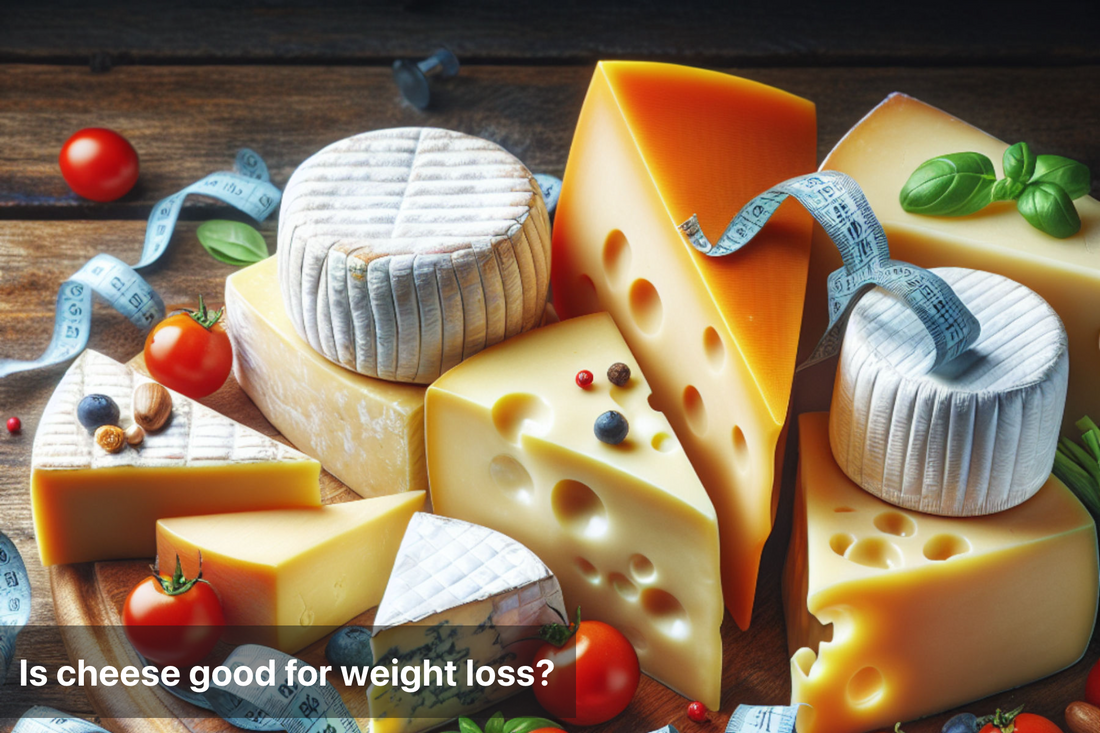
Is cheese good for weight loss?
Share
Cheese has earned a beloved spot in many diets around the world. Whether melted over a dish or enjoyed on its own, its rich flavor and satisfying texture make it a common choice for many. However, despite its popularity, questions linger regarding its impact on weight loss. So, is cheese good for weight loss?
The nutritional profile of cheese can be a bit of a mixed bag. On one side, cheese is high in protein and calcium, both essential for maintaining muscle and bone health. High-protein foods can promote satiety, potentially reducing overall calorie intake. On the flip side, cheese also tends to be calorie-dense and high in saturated fats. This raises concerns about whether indulging in cheese may counteract your weight loss efforts.
Moreover, common perceptions about cheese often lead people to believe it is inherently bad for a diet. However, understanding its nutritional aspects is key. By exploring various types of cheese and their individual features, we can better assess how they fit into weight loss goals. In the end, the relationship between cheese and weight loss is complex, but with moderation and knowledge, it may be possible to enjoy this favorite food while staying on track.

Nutritional Profile of Cheese
The nutritional profile of cheese can vary significantly depending on the type. Here's a general breakdown for 100 grams of cheese (average values):
|
Nutrient |
Amount (per 100g) |
|---|---|
|
Calories |
350-400 kcal |
|
Protein |
20-25 g |
|
Total Fat |
28-35 g |
|
Saturated Fat |
15-20 g |
|
Carbohydrates |
1-3 g |
|
Calcium |
600-800 mg |
|
Sodium |
400-700 mg |
Why Cheese Can Be Good for Weight Loss
Here are several reasons why cheese can support weight loss when consumed wisely:
-
High in Protein
-
Protein is vital for muscle repair and growth.
-
High-protein foods like cheese promote satiety, reducing overall calorie intake.
-
-
Rich in Calcium
-
Calcium helps in fat metabolism and weight regulation.
-
Studies suggest that adequate calcium intake may help reduce fat accumulation.
-
-
Low in Carbohydrates
-
Most cheeses have minimal carbs, making them suitable for low-carb or ketogenic diets.
-
-
Supports Satiety
-
Healthy fats in cheese provide long-lasting energy and help control hunger.
-
-
Versatile and Easy to Include
-
Cheese can be easily incorporated into various dishes, making healthy eating more enjoyable.
-
Health Coach Pooja Shinde (MSc. Nutrition, food science & technology — diabetes educator) says "Cheese, when enjoyed in moderation, can be a satisfying and nutritious addition to your weight loss journey. It's not about eliminating foods you love, but about making informed choices that support your goals."
Best Cheese Options for Weight Loss
When choosing cheese for weight loss, opt for varieties that are lower in calories and saturated fat. Here's a comparison of popular cheese types:
|
Cheese Type |
Calories (per 30g) |
Protein (g) |
Fat (g) |
Calcium (mg) |
|---|---|---|---|---|
|
Cottage Cheese |
80 |
11 |
3 |
60 |
|
Parmesan |
110 |
10 |
7 |
336 |
|
Feta Cheese |
75 |
4 |
6 |
140 |
|
Mozzarella (Part-Skim) |
85 |
7 |
6 |
200 |
|
Ricotta (Low-Fat) |
70 |
5 |
4 |
100 |
|
Cheddar (Reduced-Fat) |
90 |
7 |
6 |
200 |
Tips for Including Cheese in a Weight Loss Diet
Incorporating cheese into a weight loss diet can be both enjoyable and beneficial when done correctly. Here are some practical ways to enjoy cheese without overindulging:
-
Watch Portion Sizes: Stick to a serving size of 30 grams (about the size of your thumb) to avoid excessive calorie intake.
-
Pair with Fiber-Rich Foods: Combine cheese with vegetables, fruits, or whole grains to create a balanced and filling meal.
-
Opt for Low-Fat or Reduced-Fat Varieties: These provide similar nutritional benefits with fewer calories and fat.
-
Limit Processed Cheese: Avoid processed cheese products, which often contain additives, high sodium, and unhealthy fats.
-
Incorporate Cheese as a Flavor Enhancer: Use strong-flavored cheeses like Parmesan or blue cheese in small amounts to add taste without excess calories.

Cheese: The Pros and Cons for Weight Loss
|
Pros |
Cons |
|---|---|
|
High in protein and calcium |
High-calorie content |
|
Helps reduce hunger and cravings |
Some varieties are high in saturated fat |
|
Versatile and adds flavor to meals |
Can be high in sodium |
Summary
Cheese carries valuable nutrients like protein and calcium, making it a beneficial food when consumed wisely. Yet, it can also be calorie-dense and high in fat. Understanding this balance is crucial for making informed dietary choices. For instance, opting for lower-fat cheeses or controlling portion sizes can help you enjoy cheese without derailing your weight loss efforts.
Moreover, when included within the framework of a balanced diet, cheese can enhance flavor and satisfaction. This can make it easier to adhere to healthier eating plans in the long run. So, if you love cheese, don’t feel you have to eliminate it altogether. Instead, integrate it wisely.
In fostering an awareness of how cheese fits into your nutrition plan, you'll discover a way to enjoy your meals without guilt. Prioritize understanding your choices, and you’ll find that lasting weight management is possible alongside your love for cheese.
FAQs
-
Can I eat cheese every day for weight loss?
Yes, but in moderation. Stick to small portions and choose low-fat or reduced-fat varieties. -
Is processed cheese bad for weight loss?
Yes, processed cheese often contains additives and high sodium levels, which are less healthy. -
Which cheese is best for weight loss?
Cottage cheese, mozzarella (part-skim), and Parmesan are excellent low-calorie, high-protein options. -
Can cheese cause weight gain?
Overeating cheese or consuming high-fat varieties in large quantities can contribute to weight gain. -
Is vegan cheese good for weight loss?
Vegan cheese can be lower in fat and calories, but check the label for added starches or oils.
